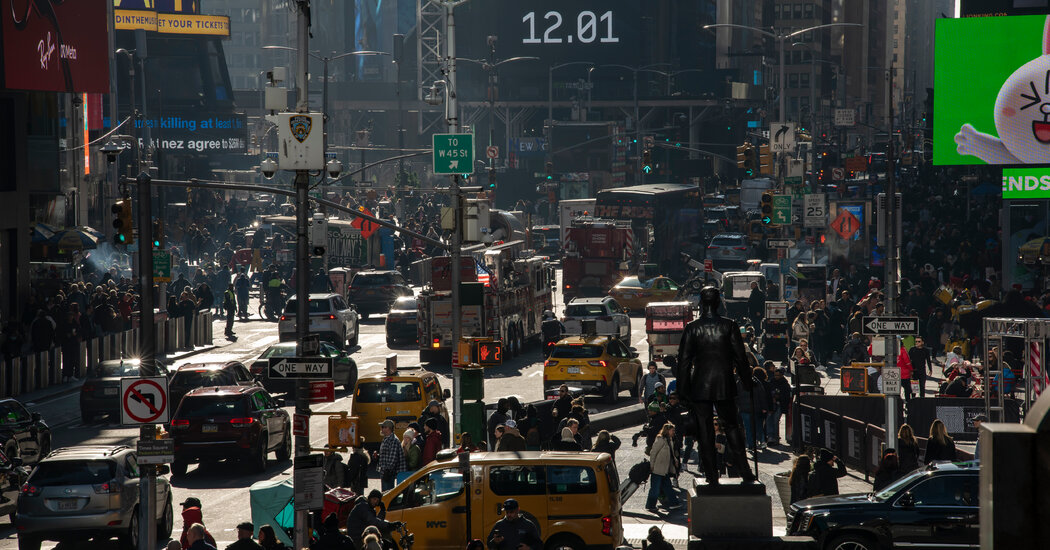Gov. Kathy Hochul announced on Wednesday that she would indefinitely halt New York’s congestion pricing plan, a last-minute move that infuriated the plan’s supporters and put her in league with unlikely allies, including former President Donald J. Trump.
The tolling program, which had been set to go into effect on June 30, was designed to reduce traffic and pollution and create $1 billion a year in revenue for the Metropolitan Transportation Authority by charging drivers who enter Manhattan south of 60th Street.
“I can’t believe that New York City is instituting Congestion Pricing, where everyone has to pay a fortune for the ‘privilege’ of coming into the City, which is in desperate trouble without it,” Mr. Trump wrote on Truth Social, his social media platform, on May 7. “It is a big incentive not to come — there are plenty of other places to go.”
For any other presumptive nominee for president, it would be an unusual fixation on a local issue.
But for Mr. Trump, whose post was published while he was in town for his criminal trial, which ended last week with his conviction on 34 felony charges, it was just another swipe at the city that made him — and that he has a habit of attacking. Trump Tower in Manhattan also happens to sit squarely within the area targeted by the tolling program.
Mr. Trump’s statement about congestion pricing came as he insisted his campaign was making a play for New York, a state no Republican presidential candidate has won in decades.
His comments aligned him with Gov. Philip D. Murphy of New Jersey and former Gov. Andrew M. Cuomo of New York, both Democrats and staunch Trump opponents who have also been vocal critics of the city’s congestion pricing plan.
On Tuesday, Ms. Hochul, another Democrat and a onetime champion of the tolling program, joined that group of strange bedfellows. Even before Ms. Hochul formally announced the delay, supporters of the plan were criticizing her by tying her to Mr. Trump.
“Pumping the brakes on congestion pricing would be a massive betrayal of several million public transit riders,” said Danny Pearlstein, the policy and communications director at Riders Alliance, which has spent years pushing for the tolls. “It would also mean taking cues from the likes of Phil Murphy, Andrew Cuomo and Donald Trump.”
For Mr. Trump, wading into the debate over congestion pricing was also an opportunity to pull the public’s focus away from his continuing legal issues. Last week, when he was found guilty of falsifying business records, he became the first U.S. president ever to be convicted of a felony. The records at the heart of the case concerned his efforts to cover up a sex scandal that threatened to derail his 2016 campaign. He is set to be sentenced next month.
Mr. Cuomo approved the congestion pricing plan in 2019, when he was governor. The following year, he accused Mr. Trump, who was president at the time, of “actively trying to kill New York City ever since he was elected.”
Mr. Cuomo has since come to oppose congestion pricing, playing on fears about crime in the subway system and claiming that it would hamper the city’s recovery from the pandemic.
And he and Mr. Trump are now aligned on a hugely important issue for the city, at the same time that Mr. Cuomo is considering entering what is shaping up to be a crowded race for mayor.
Dana Rubinstein, Grace Ashford and Michael Gold contributed reporting.
